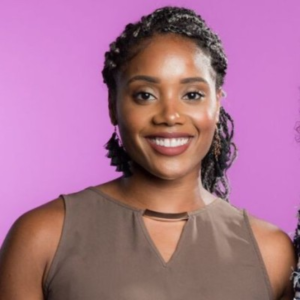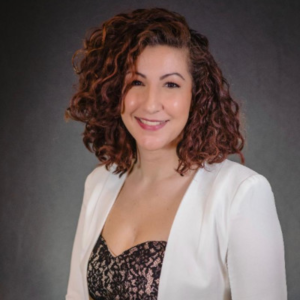Introduction to Change-Making in the Workplace Series
In April, Tufts Career Center’s Career Fellows Ismenia and Jesse moderated a panel on Change-Making in the Workplace. We will be breaking down that conversation into smaller blog posts, but if you are interested in watching the whole panel, you can do so here!
Here is the premise for the discussion: We continue to hear stories of underrepresentation and inequality in and around the workplace. How are companies responding to these longstanding injustices in their own workplaces, society and beyond? Learn about what it means to be a changemaker in the workplace and gain insight into what sort of influence you can have.
Panelists Sharing Thoughts, Insights, and Experiences
- Reema Elghossain, Vice President at 4A’s Foundation
- Phuong Ta ’16, Executive Search Consultant at Isaacson, Miller
- Gabrielle (Gabby) Thomas ’13, Diversity, Inclusion, & Belonging Program Manager at HubSpot
Trends in DE&I Initiatives
Can you speak to some of the big trends you are currently seeing in DE&I initiatives? What should students know about as they transition out of university into workspaces?
 Gabby: I’ve been thinking about this topic a lot especially as our team grows, but I’m seeing a huge shift into the depth of the work and what I mean by that is right now you’ll see a lot of blanket DEI, it’s really broad, it’s across the whole company. Something at least that we’re doing it at HubSpot is I work specifically with product and engineering so there is a depth within that field and even more so, we just hired someone for Recruiting DIB [Diversity, Inclusion, Belonging] Program Manager, we have an inclusion and belonging partner that’s on HR, so now we’re having these roles pop up outside of the DI&B team. Even as I work with product and engineering specifically, a lot of the conversations that will come up are how are we building this product equitably and we think about machine learning and algorithmic bias. So I really see the opportunity for this industry to go really deep and really specific based on whatever it is that you’re doing rather, than I’m the DEI practitioner for the whole company and what does that mean. I think both other panelists said this work is showing up, it is so much bigger, it is multifaceted, it doesn’t exist within a vacuum, and so you have to really analyze all of the systems at play and there’s some expertise that will come from that based on what it is you’re trying to do. But I really see a death coming soon down the line.
Gabby: I’ve been thinking about this topic a lot especially as our team grows, but I’m seeing a huge shift into the depth of the work and what I mean by that is right now you’ll see a lot of blanket DEI, it’s really broad, it’s across the whole company. Something at least that we’re doing it at HubSpot is I work specifically with product and engineering so there is a depth within that field and even more so, we just hired someone for Recruiting DIB [Diversity, Inclusion, Belonging] Program Manager, we have an inclusion and belonging partner that’s on HR, so now we’re having these roles pop up outside of the DI&B team. Even as I work with product and engineering specifically, a lot of the conversations that will come up are how are we building this product equitably and we think about machine learning and algorithmic bias. So I really see the opportunity for this industry to go really deep and really specific based on whatever it is that you’re doing rather, than I’m the DEI practitioner for the whole company and what does that mean. I think both other panelists said this work is showing up, it is so much bigger, it is multifaceted, it doesn’t exist within a vacuum, and so you have to really analyze all of the systems at play and there’s some expertise that will come from that based on what it is you’re trying to do. But I really see a death coming soon down the line.
So it was enlightening and really rewarding for me to be able to do this work and really dig deep in to ideas like what are they experiencing from the side of just using the product which they were fine with it, but more important, on the other side of what is the experience that they actually have with HubSpot and the products and the resources education we provide to them. I was stunned to say, I was like wow, I feel like there were parts of this that I wasn’t even anticipating that made me question how did I not think about this when I was in Customer Success, being someone who looked like them and part of me felt a little bit of guilt in that way. But, as I said, really enlightening experience, really digging deep into how we as a software company can actually do more than what you would expect a software company to do. That was like the big point where we discussed what can we be doing better to serve you [the customer]. Everyone’s said, ‘oh just like make good software’ and it’s sharing, well no, there’s actually so much more with the place that we hold in the industry, that we could be creating spaces for our black business owners, our women owned business owners, to come together and convene and have that community. Why wouldn’t we do something like that? It was super exciting, and it’s caused a lot of like change within the company since then. That has a happy ending, but during that time it felt like opening Pandora’s box, but in a good way. At least we had the backing of the company to be able to do stuff like that and again, be able to then make the promise to our customers that we want to do better, how can we and just listening to them.
 Phuong: I agree, in my line of work, in the past year we have seen many companies and universities now having inaugural vice president for DEI or chief diversity officers for the first time. It is the time they cannot really look away from having one, but also have to understand now that it’s not enough to just have a figurehead without power, with no support, without central leadership to back them up. So universities and colleges specifically now realize they have to elevate this person that they hope to bring into the campus and making clear it is a shared responsibility of the cabinet, of the leadership, of the campus, not just one person to change the whole school dynamic. That work takes time and right now they are also focused on more data. We talk about bringing more diversity for student admission, but what are we doing with retention? Can we back that up with data? I know now people are not willing to just have one person be the head of DEI and that is it. They need to have support, they have to work with resources for programming, and it has to focus on the outcomes of that too.
Phuong: I agree, in my line of work, in the past year we have seen many companies and universities now having inaugural vice president for DEI or chief diversity officers for the first time. It is the time they cannot really look away from having one, but also have to understand now that it’s not enough to just have a figurehead without power, with no support, without central leadership to back them up. So universities and colleges specifically now realize they have to elevate this person that they hope to bring into the campus and making clear it is a shared responsibility of the cabinet, of the leadership, of the campus, not just one person to change the whole school dynamic. That work takes time and right now they are also focused on more data. We talk about bringing more diversity for student admission, but what are we doing with retention? Can we back that up with data? I know now people are not willing to just have one person be the head of DEI and that is it. They need to have support, they have to work with resources for programming, and it has to focus on the outcomes of that too.
 Reema: You both said it so well, if I can add to that, it is I think something big that’s happening is that employees are starting to understand that they can use their voices, and they can start asking questions, and they can start wanting to know. I think that’s really important, and I think there’s an accountability that you both talked about that’s spot on. No longer can you put your logo on something and that means you care about it or just write out a statement. It is now, well what are you doing about it? A lot of different programming is happening and a lot more people within the organization are starting to understand and get involved. I think the equity, the diversity kept being talked about. A lot of times industries noticed, okay we can bring a lot of people in, but people of color are leaving and so that means they are not having a good experience. I can bring you 500,000 fellows and help them get jobs, but then they are in there for three years and then they leave. Retention is now something that people are noticing and that is directly tied towards the equity and inclusivity and the belonging. As Gabby mentioned, retention rates are the most important part and I think people are starting to focus more on that component. That is a harder thing to do, but it requires a lot more accountability as you both mentioned.
Reema: You both said it so well, if I can add to that, it is I think something big that’s happening is that employees are starting to understand that they can use their voices, and they can start asking questions, and they can start wanting to know. I think that’s really important, and I think there’s an accountability that you both talked about that’s spot on. No longer can you put your logo on something and that means you care about it or just write out a statement. It is now, well what are you doing about it? A lot of different programming is happening and a lot more people within the organization are starting to understand and get involved. I think the equity, the diversity kept being talked about. A lot of times industries noticed, okay we can bring a lot of people in, but people of color are leaving and so that means they are not having a good experience. I can bring you 500,000 fellows and help them get jobs, but then they are in there for three years and then they leave. Retention is now something that people are noticing and that is directly tied towards the equity and inclusivity and the belonging. As Gabby mentioned, retention rates are the most important part and I think people are starting to focus more on that component. That is a harder thing to do, but it requires a lot more accountability as you both mentioned.

